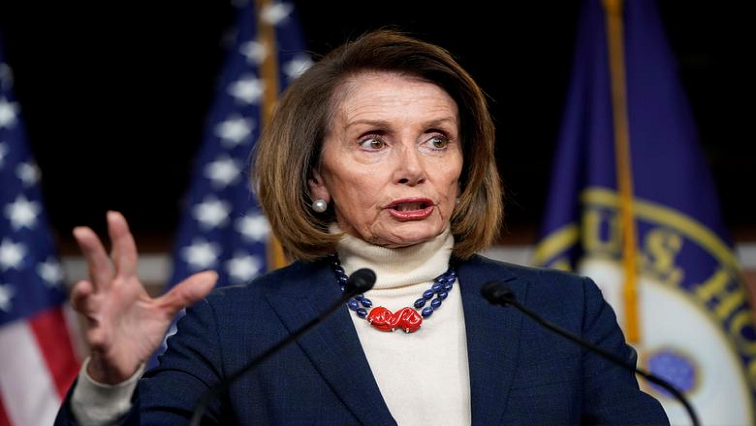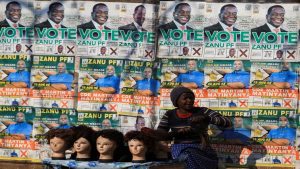Nancy Pelosi’s brief visit this week to the self-ruled island that China regards as its territory infuriated Beijing and prompted unprecedented military drills that have included ballistic missiles fired over the capital, Taipei.
U.S. Secretary of State Antony Blinken accused China of taking “irresponsible steps” by halting key communication channels with Washington, and said its actions over Taiwan showed a move from prioritising a peaceful resolution to the use of force.
The Chinese exercises – centred on six locations around the island – began on Thursday and are scheduled to last until midday on Sunday.
Taiwan’s defence ministry said multiple Chinese ships and planes conducted missions in the Taiwan Strait, with some crossing the median line, an unofficial buffer separating the two sides, in what the Taiwan military described as a simulation attack on the island.
China’s Eastern Theater Command said it had continued to conduct sea and air joint exercises north, southwest, and east of Taiwan. It said its focus was on testing the system’s land strike and sea assault capabilities.
Chinese warships and aircraft continued to “press” into the median line of the Taiwan Strait on Saturday afternoon, a person familiar with security planning said.
Off Taiwan’s east coast and close to Japanese islands, Chinese warships and drones simulated attacks on U.S. and Japanese warships, the person added.
Taiwan’s army broadcast a warning while deploying air reconnaissance patrol forces and ships to monitor and put shore-based missiles on stand-by.
The island’s defence ministry published a photo of a Taiwanese sailor on a frigate looking at a nearby Chinese warship off Taiwan’s east coast. “Not photoshopped! “the caption said.
It also said it fired flares late on Friday to warn away seven drones flying over its Kinmen islands and unidentified aircraft flying over its Matsu islands. Both island groups are close to mainland China’s coast.
Pelosi arrived in Taiwan late on Tuesday in the highest-level visit to the island by a U.S. official in decades, despite Chinese warnings.
Shortly after her delegation left Japan on Friday, the final stop of a week-long Asia tour, China announced that it was halting dialogue with the United States in a series of areas including contact between theatre-level military commanders and climate change.
Speaking during a visit to the Philippines, Blinken said the United States had been hearing concern from allies about what he called China’s dangerous and destabilising actions around Taiwan, but Washington would remain steady in its handling of the situation and sought to avoid escalating the situation.
He said China’s cessation of bilateral dialogue in eight key areas was moved that would punish the world, not just the United States.
China’s foreign minister Wang Yi told a media briefing on Friday that Blinken was spreading “misinformation”, adding: “We wish to issue a warning to the United States: Do not act rashly, do not create a greater crisis,” Wang said.
Jing Quan, a senior Chinese Embassy official in Washington, echoed that, telling a briefing: “The only way out of this crisis is that the U.S. side must take measures immediately to rectify its mistakes and eliminate the grave impact of Pelosi’s visit.”
‘PROVOCATIVE MILITARY EXERCISES
White House national security spokesperson John Kirby said on Friday there was nothing for the United States to rectify.
“The Chinese can go a long way to taking the tensions down simply by stopping these provocative military exercises and ending the rhetoric,” he told reporters.
China has not mentioned a suspension of military talks at the senior-most levels, such as with U.S. Defense Secretary Lloyd Austin and Chairman of the Joint Chiefs of Staff General Mark Milley. While those talks have been infrequent, officials have said they are important in the case of an emergency.
Kirby said it was not atypical for China to shut down military talks at times of tension but “not all channels “between military leaders had been cut.
Speaking in Japan after meeting Prime Minister Fumi oKishida, Pelosi said her Asia trip was “not about changing the status quo in Taiwan or the region”.
Japan’s defence ministry reported that as many as four missiles flew over Taiwan’s capital, which is unprecedented. It also said that five of nine missiles fired toward its territory landed in its exclusive economic zone.
Kishida told visiting U.N. Secretary-General Antonio Guterres that he strongly condemned China’s missile launches as “a serious issue concerning Japan’s security and the safety of Japanese people”, the foreign ministry said.
The Chinese Embassy in Australia, meanwhile, said Beijing hoped that Australia will be prudent on Taiwan issues and avoid being led by others which could cause fresh trouble for ties between the two countries.
Its spokesperson’s remarks, posted on the embassy’s website, were commenting on an earlier statement released by Blinken and the foreign ministers of Australia and Japan expressing concerns over China’s military drills.
Taiwan has been self-ruled since 1949, when Mao Zedong’s communists took power in Beijing after defeating Chiang Kai-shek’s Kuomintang nationalists in a civil war, prompting their retreat to the island.
Beijing says its relations with Taiwan are an internal matter and that it reserves the right to bring the island under its control, by force if necessary. Taiwan rejects China’s claims saying only Taiwan’s people can decide their future.






